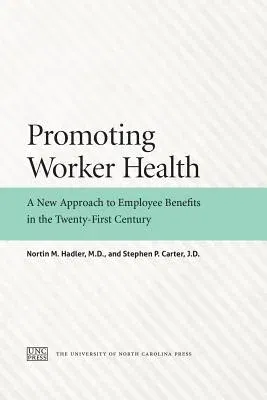Nortin M Hadler
(Author)Promoting Worker Health: A New Approach to Employee Benefits in the Twenty-First CenturyPaperback, 25 June 2018

Qty
1
Turbo
Ships in 2 - 3 days
In Stock
Free Delivery
Cash on Delivery
15 Days
Free Returns
Secure Checkout
Print Length
34 pages
Language
English
Publisher
University of North Carolina Press
Date Published
25 Jun 2018
ISBN-10
1469650967
ISBN-13
9781469650968
Description
Product Details
Authors:
Book Format:
Paperback
Country of Origin:
US
Date Published:
25 June 2018
Dimensions:
22.86 x
15.24 x
0.23 cm
ISBN-10:
1469650967
ISBN-13:
9781469650968
Language:
English
Location:
Chapel Hill
Pages:
34
Publisher:
Weight:
68.04 gm

